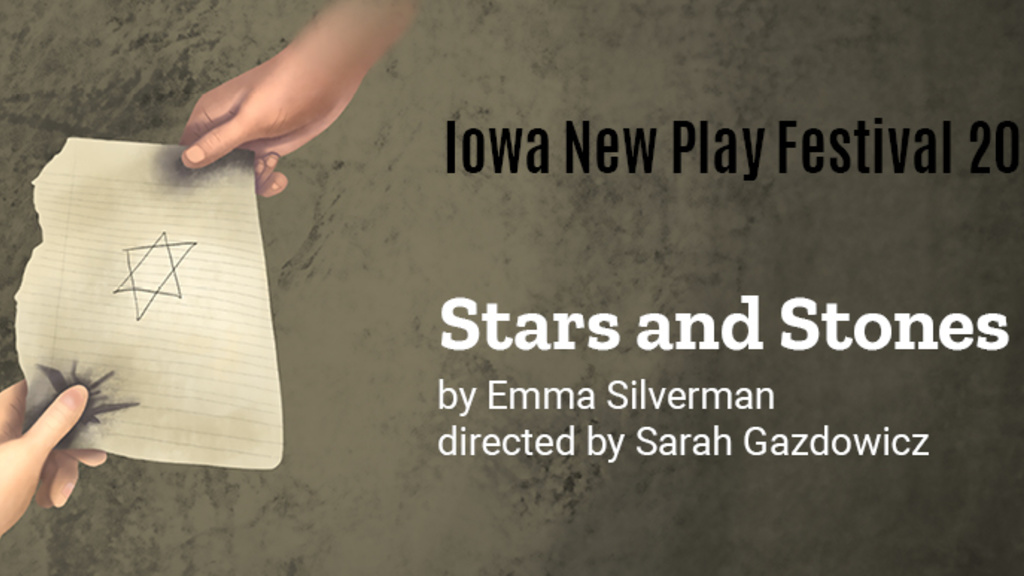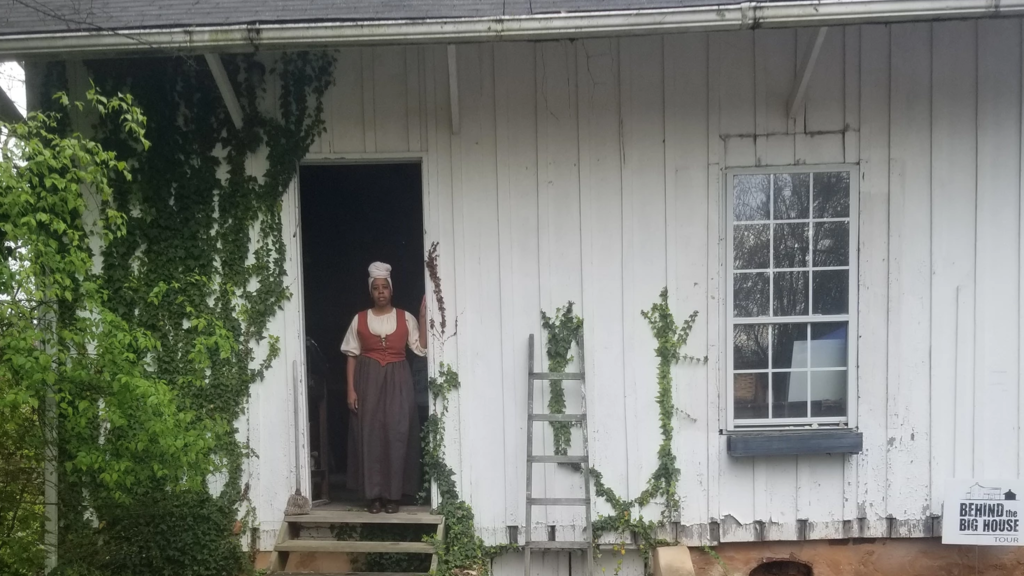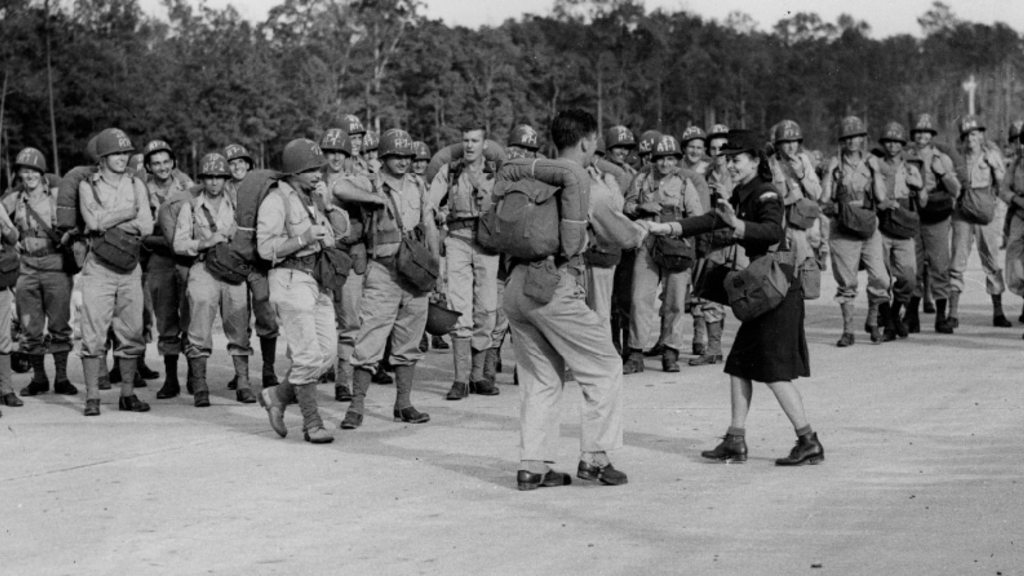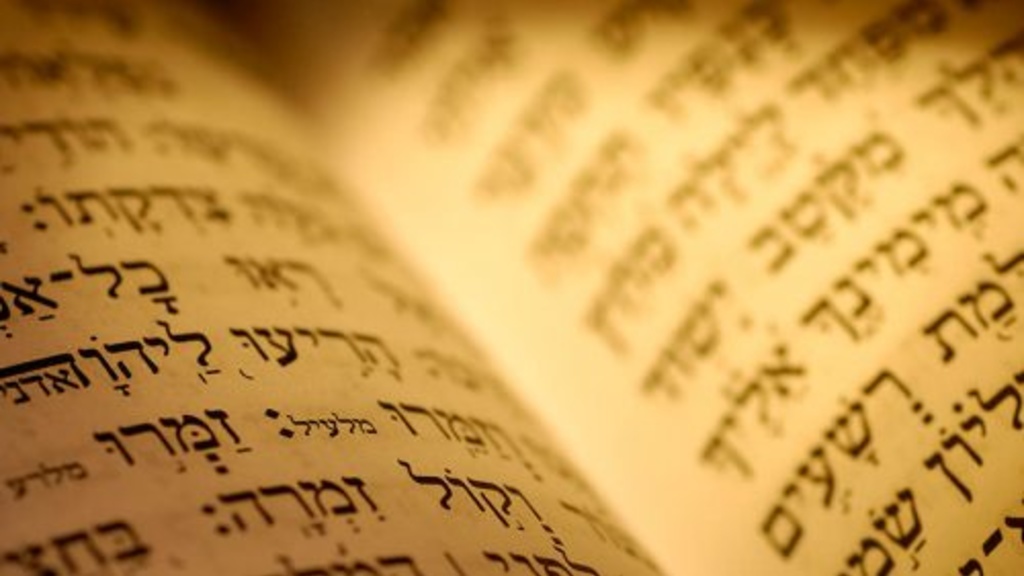Articles from April 2022
Explore the latest news about Obermann programs, events, and our interdisciplinary community of scholars.

Seeking Memories in Poland: MFA playwright reckons with Holocaust memorialization
Thursday, April 28, 2022
As part of its support for the Anne Frank Tree Planting Ceremony, the Obermann Center provided funding to Emma Silverman, an MFA candidate in the UI Playwrights Workshop, toward completion of Silverman's thesis play. Emma performed an excerpt from Stars and Stones at the Tree Planting Ceremony last Friday. The play will be staged in its entirety this Thursday, May 5, 2022, as part of the UI's New Play Festival. (See ticketing details at the end of this article.)
Silverman is the recipient of a Marcus Bach Fellowship, an award given by the UI College of Liberal Arts and Sciences, to support the completion of an MFA project or doctoral dissertation, particularly work that fosters intercultural communication and/or the understanding of diverse philosophies and religious perspectives. Silverman intended to use the award toward direct research of Holocaust tourism.

Scholar, Descendant, Collaborator: Jodi Skipper's new book explores slave dwelling project
Sunday, April 17, 2022
The words "slavery" and "tourism" don’t seem like they belong anywhere near each other. But a growing number of Americans of all races are eager to better understand our country’s complicated history by visiting places where difficult and often darkly violent events occurred. Ensuring that we, the touring populace, receive complete stories when we arrive at these spaces, a network of historians, anthropologists, and community activists are working against time to save the material remnants of the lived experience of enslaved people.
Among them is Jodi Skipper, a University of Mississippi professor of anthropology and southern studies. For the past decade, she has used tools as an archaeologist, scholar, teacher, and community member to widen and deepen the shared narratives of historic sites in the U.S. south. She has shared these experiences in a new book, Behind the Big House: Reconciling Slavery, Race, and Heritage in the U.S. South, just published by the University of Iowa Press.

Dancing During War: Kowal Explores WWII Photo Archives
Thursday, April 7, 2022
“When we think about performance during World War Two, we think about USO shows and famous American performers like Bob Hope and Bette Davis,” says Rebekah Kowal, Spring 2022 Obermann Fellow-in-Residence. On the face of it, these performers were sent to overseas U.S. military camps to uplift soldiers’ spirits by providing a sense of home and “Americanness.” But there were many other forms of movement and performance that served other (rather overt) purposes, from displaying Western cultural dominance and exerting control over subjected people’s bodies to reintegrating the detained, creating a pathway to U.S. citizenship, and serving as a normalcy touchstone for the dancers.
Kowal (Dance, CLAS) is deep in research for a new book tentatively titled War Theatre: Dancing American Citizenship and Empire during World War II. After writing about the contribution of American modern dance to aesthetic and social change in the 1950s (How to Do Things with Dance: Performing Change in Postwar America [Wesleyan UP, 2010]) and about globalism and the performance of international dance in the U.S. after WWII (Dancing the World Smaller: Staging Globalism in Mid-Century America [Oxford, 2019]), she figured her next project would move away from the WWII era. But one sleepless night—“one of those bizarre moments during COVID,” she recalls—she pulled up the National Archives’ online catalog and started typing interesting keywords.

Working Group Spotlight: Jewish Studies
Monday, April 4, 2022
This is part of a series highlighting recently formed Obermann Center Working Groups. Lisa Heineman (History), co-director of the Jewish Studies Working Group with Ari Ariel (History), shared her responses. Thank you, Lisa! If you are interested in starting an Obermann Working Group for 2022-23, the application deadline is April 12.
Q. This is the first year of your Working Group. What led you to start it?
A: Iowa is the only Big 10 school without a Jewish Studies program. Yet Jewish Studies is an incredibly dynamic field of study, with real contemporary relevance—and we have many terrific teachers and scholars of Jewish Studies on our campus. We were hearing from students, alumni, and parents who made clear there was a demand for the field. We decided it was time to get together and think about how to have a more meaningful presence on campus.
Q. What kinds of people and from what disciplines are participating in your Group?
A. We have faculty members from History, International Studies, German, GWSS, Classics, Religious Studies, English, Translation, the Maggid Writing Center…. I hope I’m not forgetting anyone! We have emeriti and graduate students with important areas of expertise, and we have community members who play significant roles in Jewish life beyond our campus.